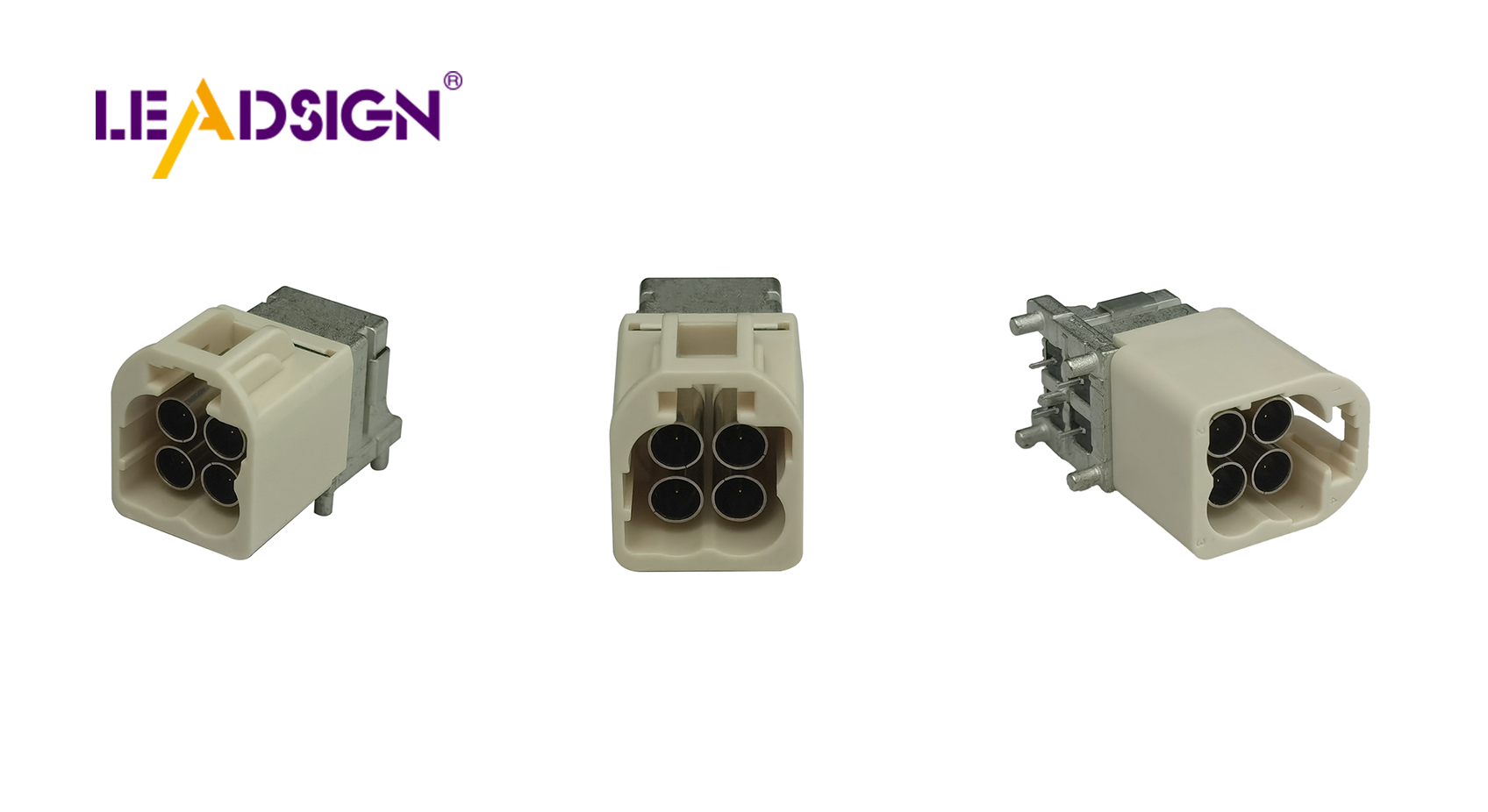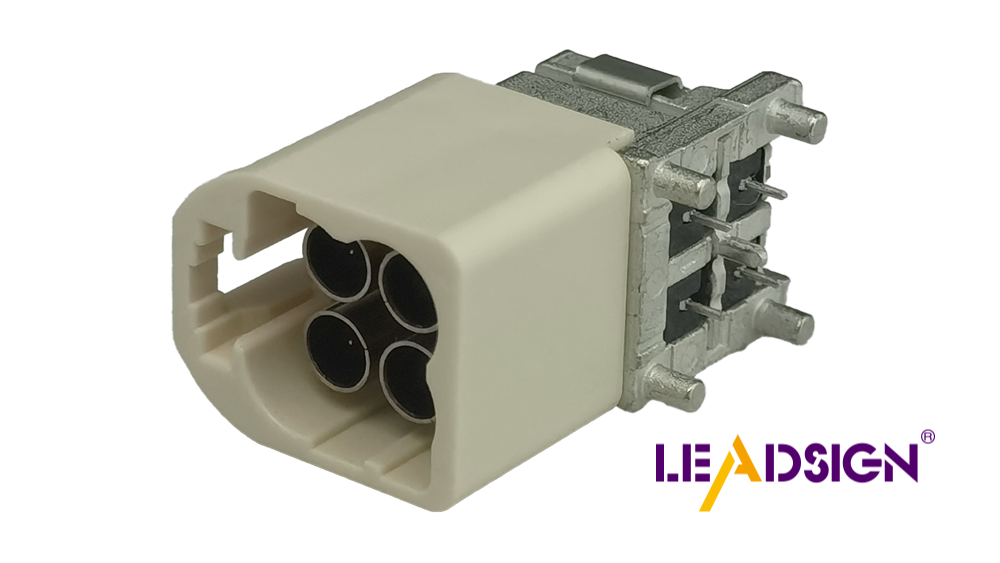Understanding Automotive Wiring Connector Types

Automotive electrical connectors types are crucial in modern vehicles, facilitating communication between various car components. These connectors ensure a stable electric flow, which is essential for optimal performance and safety. Certain types of connectors may fail more frequently due to heat or power fluctuations. By ensuring robust and efficient connections, these components prevent electrical issues, contributing to the smooth operation of the vehicle. Understanding their importance can lead to improved maintenance and a longer-lasting car.
Overview of Automotive Electrical Connectors
Definition and Purpose
What are Wiring Connectors?
Wiring connectors are key parts in car systems. They link electrical circuits, keeping electricity flowing between vehicle parts. These connectors have different shapes and sizes for specific needs. Automotive Electrical Connectors protect against heat, moisture, and rust. They have self-cleaning contacts, seals, and customizable housings for reliability.
Importance in Automotive Systems
In cars, wiring connectors are very important. They help electrical signals move well between parts. Good signal flow is crucial for a car's electrical system to work right. Without good connectors, cars might have electric problems or safety issues. Hi-Rel Connectors handle shocks, vibrations, and temperature changes well, making them great for tough conditions.
Basic Components of Connectors
Contacts
Contacts are the heart of any connector. They make the physical link for electric connections. Good contacts mean less resistance and better conductivity. Deutsch Connectors have a special seal design that keeps connections strong even in tough places.
Insulation
Insulation covers the contacts to stop shorts and protect from outside factors. It makes sure electricity goes only where it should. Heat Shrink Connectors give a strong solution by enclosing a crimp connector in a heat-shrink tube for sealed connections.
Housing
The housing holds contacts and insulation together. It gives support and shields from outside things. Customizable housings offer design flexibility. Sealed Connectors provide strong connectivity by blocking moisture and dirt so they work well in many conditions.
Types of Automotive Electrical Connectors

Blade Connectors
Features and Applications
Blade connectors, also known as spade connectors, are flat metal pieces. They fit into matching slots. These are often used in cars because they are easy to use and dependable. They connect wires to parts like switches and fuses. Their design allows quick connections, perfect for when you need to fix or change things often.
Advantages and Disadvantages
Advantages:
Simple to plug in and unplug, making repairs easier.
Easy to find and not expensive.
Good for low to medium power uses.
Disadvantages:
Not great in places with lots of shaking; they might come loose.
Only work for certain uses because of their shape.
Pin Connectors
Features and Applications
Pin connectors have a pin that fits into a socket. This makes a strong link between wires and parts. They are common in car systems where a steady connection is important. Often found in engine controls needing exact signals.
Advantages and Disadvantages
Advantages:
Make a strong link that doesn't easily disconnect.
Fit many wires close together due to small size.
Come in different styles for various needs.
Disadvantages:
Harder to set up than blade connectors.
Can cost more because they're complex.
Butt Connectors
Features and Applications
Butt connectors look like tubes joining two wire ends together. They're used a lot for fixing or adding wires in cars. Perfect for making wires longer or fixing broken ones, keeping electricity flowing well.
Advantages and Disadvantages
Advantages:
Give a solid join for connecting wires.
Easy with crimping tools, good for home fixes.
Protect well from weather when using heat shrink covers.
Disadvantages:
Not good if you need to take them apart often.
Might need extra cover for better safety.
Knowing the different automotive electrical connector types helps pick the right one for each job. Each has special features making them useful for various car tasks. By thinking about how easy they are to use, how reliable they are, and what they're needed for, you can keep car systems working well longer.
Ring and Spade Connectors
Features and Uses
Ring and spade connectors are very common in cars. They have a metal ring or fork that fits over a bolt. This makes a strong connection. These connectors are used for grounding wires to battery posts or blocks. Their design makes them easy to put on and take off, which is good when you need to disconnect often.
Ring connectors make a full circle, keeping the connection strong even if things shake. Spade connectors look like forks, so they attach fast without taking the screw out all the way. This is handy when speed matters.
Pros and Cons
Pros:
Strong Connections: Ring connectors hold tight, so they don’t come loose easily. This is great for important uses where trust is key.
Simple to Use: Both types are easy to add or remove, making fixes simpler.
Flexible Use: They fit many wire sizes and work with different terminals, making them useful in many car jobs.
Cons:
Less Flexible: You must take off the screw for ring connectors, which can take time.
Might Loosen: Spade connectors can wiggle free if not tight enough, especially where there’s lots of shaking.
Knowing about ring and spade connectors helps pick the right one for car tasks. By thinking about how easy they are to use and how safe they are, you can keep car systems working well longer.
Picking the Right Connector
Choosing the right connector is very important. It keeps Choosing the right connector working well and safe. Knowing what to look for and avoiding mistakes helps make good choices.
Things to Think About
Power Needs
When picking connectors, check power needs first. The connector must match the system's current and voltage. If it can't handle the load, it might get too hot or break. So, always check both system and connector specs for safety.
Weather Conditions
Weather affects which connector to use. Connectors should handle things like heat, wetness, and shaking. For example, engine connectors need to resist heat and fluids. Good seals and insulation stop damage from weather.
Mistakes People Make
Wrong Size
Picking the wrong size is common. A small one may not fit right, causing bad connections or failures. A big one might not hold wires tight enough. Make sure the size fits wire gauge and terminal size for a good connection.
Bad Material Choice
Bad materials can make connectors fail. Cheap ones might rust or wear out fast in tough spots. Strong materials like nylon last longer against weather problems. Good materials mean connectors work well for a long time.
By thinking about these points and avoiding errors, you can pick the best connectors for your car needs. This careful choice helps keep car systems running safely.
Choosing the right automotive electrical connectors types is very important for cars. These connectors help keep everything working well and safely. Automotive Engineers from Waytek and Amphenol Sine Systems say it's key to pick connectors that fit power needs and weather conditions. Knowing how connectors work can help people take better care of their cars. Picking the right ones stops electric problems and helps car parts work smoothly, making driving easier.
See Also
Exploring HSD Connectors in the Auto Sector
Significance of Fakra Connectors in Contemporary Cars
Navigating Ford Fakra Connectors

